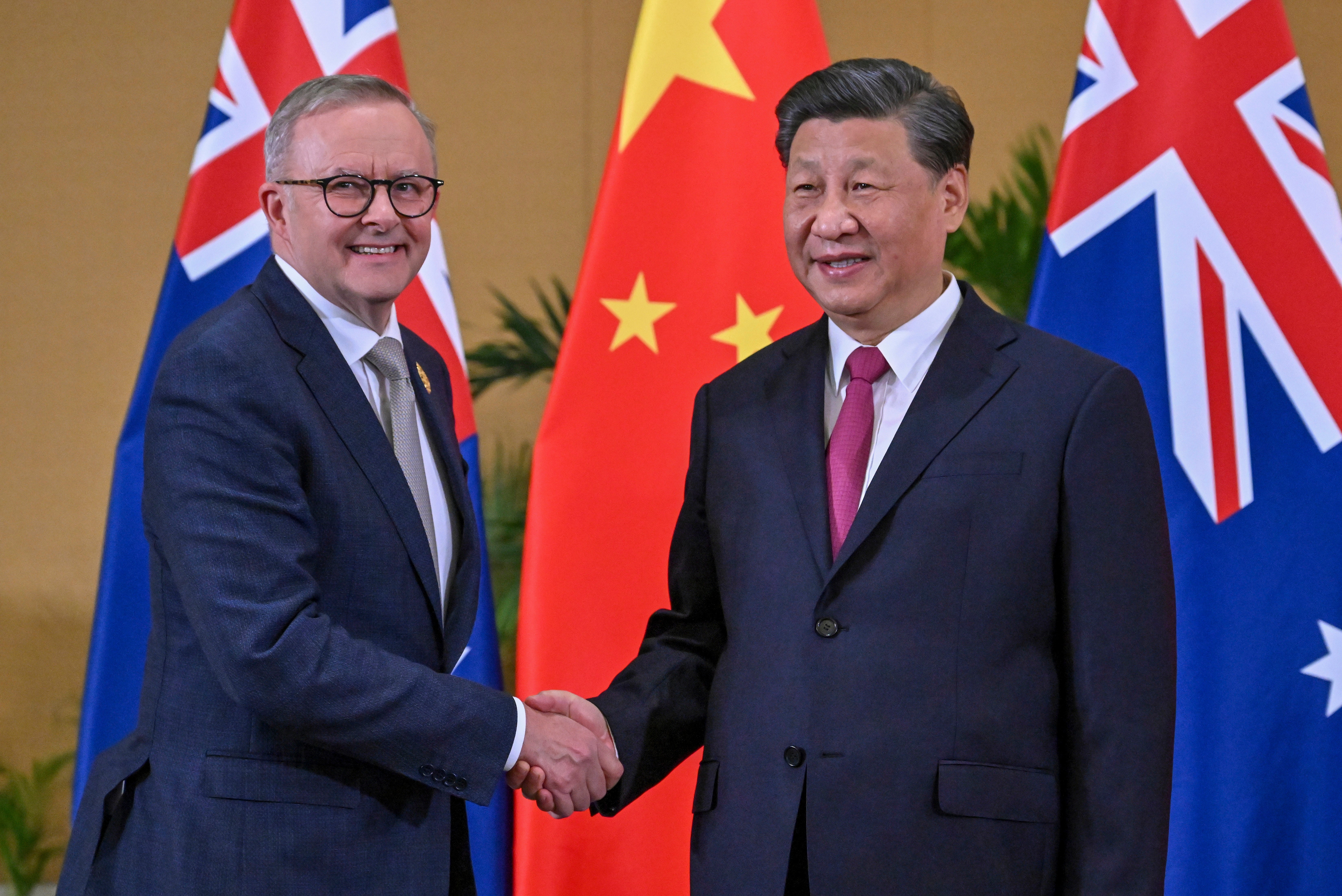Australian PM raises trade 'blockages' with China's Xi
Australia’s Prime Minister Anthony Albanese says he raised with Chinese President Xi Jinping concerns about trade “blockages” but did not walk away from their first face-to-face talks with any promises that the $13 billion barriers to Australian exports would be lifted

Australia’s Prime Minister Anthony Albanese said he raised with Chinese President Xi Jinping on Tuesday his concerns about trade “blockages,” but did not walk away from their first face-to-face talks with any promises that the $13 billion barriers to Australian exports would be lifted.
The Australian government described the talks on the sidelines of the G-20 summit in Indonesia as the first formal bilateral meeting between the two nations’ leaders since 2016, when Xi met then-Prime Minister Malcolm Turnbull in the Chinese city of Hangzhou.
Bilateral relations plummeted since then over issues including Australia’s ban on Chinese telecommunications giant Huawei’s involvement in 5G networks, calls for an independent inquiry into the COVID-19 pandemic and new laws banning covert international interference in Australian politics.
Since the center-left Labor Party came to power in May after nine years of conservative rule, Albanese has been calling for China to lift a series of official and unofficial barriers to Australian exports including beef, wine, seafood, wood and coal that cost $13 billion a year.
Albanese described his 30-minute meeting with Xi as “successful,” “positive,” “warm” and “constructive.”
“I put forward Australia’s position when it comes to the blockages in our trading relationship,” Albanese told reporters on the resort island of Bali.
“It was a positive discussion. We put forward our position. It was not anticipated that a meeting such as that you get immediate declarations. I believe if people thought that would happen, then that was not realistic,” Albanese added.
Albanese said the two leaders also discussed human rights in China's western Xinjang region, Chinese-born Australian citizens Yang Hengjun and Cheng Lei who are detained in China, climate change, self-ruled Taiwan and Australia’s desire for Beijing to use its influence on Russia to prevent the use of tactical nuclear weapons in Ukraine.
Australia’s deal with the United States and Britain announced last year to create an Australian submarine fleet powered with U.S. nuclear technology was not raised, Albanese said.
The Chinese People’s Daily English-language newspaper reported last week that “signs of resetting bilateral ties have emerged” since Albanese’s government came to power in May.
Beijing immediately lifted a ban on minister-to-minister contacts after the election.
Albanese said both leaders agreed on Tuesday that dialogue between their governments would continue.
Xi met Turnbull on the sidelines of the G-20 summit in Hamburg, Germany, in 2017, but the Australian government considers their talks a year earlier were the last formal bilateral meeting between the two countries.
____
McGuirk reported from Canberra, Australia
Bookmark popover
Removed from bookmarks